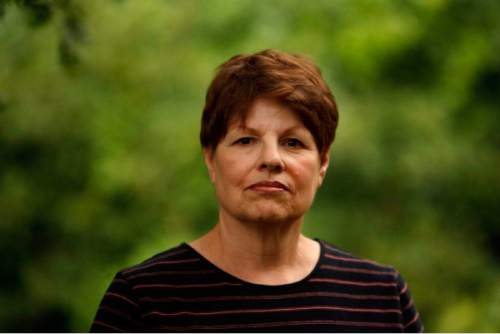This is an archived article that was published on sltrib.com in 2016, and information in the article may be outdated. It is provided only for personal research purposes and may not be reprinted.
Once again, Sen. Stuart Adams is sponsoring legislation (Senate Bill 115) which will raise utility rates and completely skew utility law in favor of Rocky Mountain Power at the expense of all its customers.
Rocky Mountain Power's STEP legislation mandates sweeping changes in utility regulation, and none of the initiatives proposed in this legislation have been shown to have a significant impact on air quality.
After more than two decades of fighting against politically powerful utilities, you would think I wouldn't be shocked or angered by just how little concern some legislators have for their constituents. Last week I left Capitol Hill appalled after the committee hearing on SB115. A large and diverse group of organizations oppose this legislation; consumer advocates, low-income advocates, environmental advocates, clean-energy advocates and major segments of Utah's business and industry. Despite this opposition and numerous concerns raised by senators on the committee, they passed it out of committee with a favorable vote. Only Sen. Wayne Harper voted against it, even though senators acknowledged it to be seriously flawed.
Adams' legislation mandates opening utility bills to costs other than those of providing electric service. If Utah makes this change, it will take us down the road of states like California that fund all sorts of public policy through utility rates, which could dramatically increase rates over time.
This bill removes oversight from the utility in multiple ways. A monopoly needs to be regulated. Reducing oversight doesn't reduce the administrative burden, it simply makes it easier to raise rates.
We respect that the Legislature sets policy. However, this legislation isn't establishing policy. It is giving up authority and oversight to Rocky Mountain Power.
This legislation also shifts risks from the utility to the customers, who have no ability to manage the risk. Not only does this potentially raise rates, but it also results in an unjustified increase in profits to Rocky Mountain Power and its parent company, Berkshire Hathaway (Warren Buffet). The rates of return are established to reflect the risk profile of the utility. When you remove their risks but allow the same or greater levels of profit, you just legislate a windfall to this large out-of-state corporation.
I can understand why Rocky Mountain Power chose to circumvent the Public Service Commission and go directly to Adams. That's what companies do: protect shareholders. At the Public Service Commission, Rocky Mountain Power must provide evidence and analysis to prove its case. At the Legislature, Rocky Mountain Power is able to use its disproportionate power, its army of lobbyists and its ability to give campaign donations to achieve its desired results.
Senators who heard and passed this legislation out of committee received campaign contributions from the utility company. Adams received a large campaign contribution from the company shortly before RMP publicly announced its STEP proposal. The committee chairman, Sen. Alvin Jackson, and Sen. Karen Mayne also received large contributions. Two other members, Sens. David Hinkins and Kevin Van Tassell, received very large donations from the Senate Republican Campaign PAC, to which the company gave a large donation.
There is a great debate being waged in the country during this election year concerning the large corporations and the vast wealth inequality. Citizens are no longer willing to accept policy that benefits corporations at the expense of the public. The campaign contributions may be smaller on the state level, but the principle is the same.
If you care about the cost of your utility bills, you should contact your representative and senator to remind them who they really should be representing and ask them to vote "No" on SB115.
Claire Geddes is a longtime consumer advocate. She lives in Cottonwood Heights.



